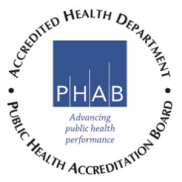Frequently Asked Questions
Where do I get a copy of my septic tank permit?
Call the health unit in the county where the property is located and ask for the Onsite Environmental Specialist. It will help if you know what year the home was built, the subdivision name & lot number, and the name of the original owner or developer.
What’s the minimum lot size for a septic system?
There is no minimum lot size. The space required for a sewage system is determined by the suitability of the soils at the site, the number of bedrooms in the home, and the 100 foot set back from water wells.
How do I get a permit for a septic system?
Call the health unit in the county where the property is located and ask for the Onsite Environmental Specialist. They will give you a list of the private individuals in your area that are licensed to do soil tests and design sewage systems.
Where do I get a list of individuals that design and install septic systems?
You may search our database of Onsite Wastewater Licensees by clicking HERE. If you are looking for someone to design a septic system, you will need to select the “Designated Representative” license type and if you are looking for a septic system installer you will select the “Advanced Septic Installer” license type.
Where do I get a list of people that install septic systems?
Call the health unit in the county where the property is located and ask for the Onsite Environmental Specialist.
How do I get a Designated Representative License?
Act 402 of 1977 defines and lists the qualifications for Designated Representatives. Registered Professional Engineers, Registered Professional Land Surveyors, Registered Professional Sanitarians, and Licensed Master Plumbers. Similarly qualified individuals with education and experience in soil science are considered on a case-by-case basis. The applicant must successfully complete a licensing examination administered four times a year, by a committee of Registered Professional Sanitarians employed by the Department. The examination test dates are posted on the Training and Examination page. For more information contact Environmental Health Protection.
How do I get a Septic Tank Installer License?
Act 402 of 1977 requires that septic tank installer applicants must pass a licensing examination administered by the Department. The examination is administered ten times a year, January through October, at a predetermined time and location. The examination test dates are posted on the Training and Examination page.
How do I get an Onsite Maintenance Provider License?
Act 402 of 1977 requires that onsite maintenance provider applicants must pass a licensing examination administered by the Department. A training CD is available, on request, by contacting the Onsite Waste Program at the number listed below. The examination is administered ten times a year, January through October, at a predetermined time and location. The examination test dates are posted on the Training and Examination page.
How do I get a Septic Tank Manufacturing License?
Persons or companies wishing to manufacture and/or distribute septic tanks in Arkansas may obtain information on requirements and pre-licensing inspections by contacting the Onsite Waste Program at the number listed below.
How do I get a Septic Tank Cleaning License?
Persons or companies cleaning or pumping septic tanks, holding tanks, marine sanitation devices, and/or portable toilets must obtain a Septic Tank Cleaner License for the Department. Act 71 of 1973 requires that septic tank cleaner applicants must pass a licensing examination administered by the Department prior to licensing. The examination is administered ten times a year, January through October, at a predetermined time and location. The examination test dates are posted on the Training and Examination page.
How do I submit plans for a subdivision?
How do I submit plans for a mobile home or recreational vehicle park?
How do I submit plans for a sewage system that serves more than one building?
Who do I call if I have an issue with my local Environmental Specialist?
The Regional Health Office and ask for the Regional Manager. Local Health Units
Why does the Health Department require soil pits instead of percolation tests?
The percolation test provides only a rough estimate of a soil’s ability to move water. The Designated Representative and the Environmental Specialist use the soil pits to determine the depths to rock, any impervious soil layers, and the anticipated level of groundwater in the wet periods of the year. This additional information results in a sewage system design that overcomes the soil’s limitations.
Is there an exemption from getting a septic system permit?
The exemption applies to a single residence located on ten or more acres where all parts of the sewage system are more than 200 feet from any property line, including roads. The exemption is only for obtaining a permit. The property owner is still required to install and operate the sewage system in a manner that meets state requirements and does not cause a nuisance. A letter stating that the property is exempt from the permit requirement may be obtained from the local Health Unit. This exemption does not apply to any other state or federal requirements.


